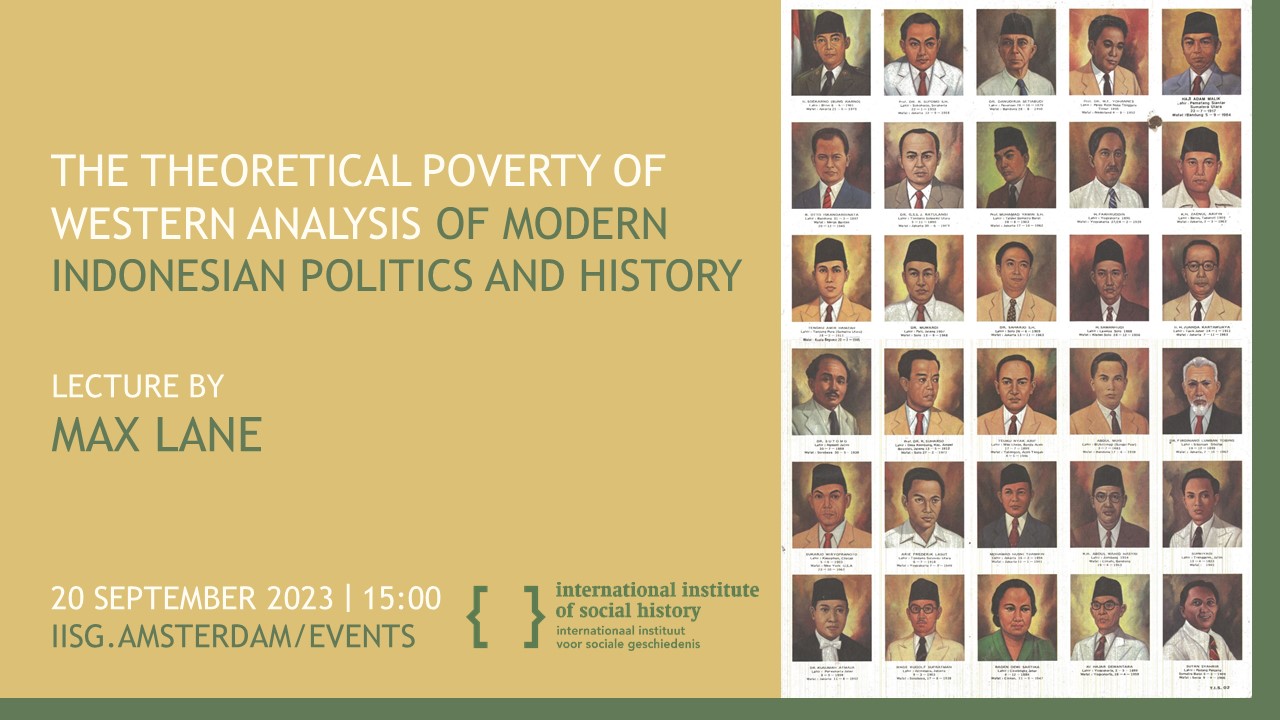The Theoretical Poverty of Western Analysis of Modern Indonesian Politics and History
Even since the 1950s, the study of Indonesian political history and contemporary politics has been devoid of any explicit discussions of theoretical frameworks for understanding history and politics.
An essentially empirical descriptive approach has been dominated through the decades (apart from a few scholars), sometimes coloured by references to theories about parliamentary democracy, sometimes with references to 'political economy".
This hegemony was well described by Professor Edward Aspinall in his essay The Politics of Studying Indonesian Politics: Intellectuals, Political Research and Public Debate in Australia. In this essay, he describes both the approaches of conventional liberal scholarship and the Murdoch political economy school as "critical liberalism". Much of his description also applies to Dutch scholarship in these areas. Aspinall's framework is also useful to look at US work in these areas, although these are also coloured by the influence of area studies, which has added an emphasis to cultural and anthropological liberalism.
This "critical liberalism" - with the critical aspect being very faint - has consistently failed to help explain social and political change in Indonesia, although easily able to describe the superficial features of political hegemony at any one moment. This talk will explain examples of the explanatory failures and superficiality of description and will look at the alternative, but still marginal, theoretical approaches of Marxist analysis, with reference to both the reality of imperialism and domestic class issues, as well as that framed by the search for a social democratic solution to Indonesia's political contradictions.




